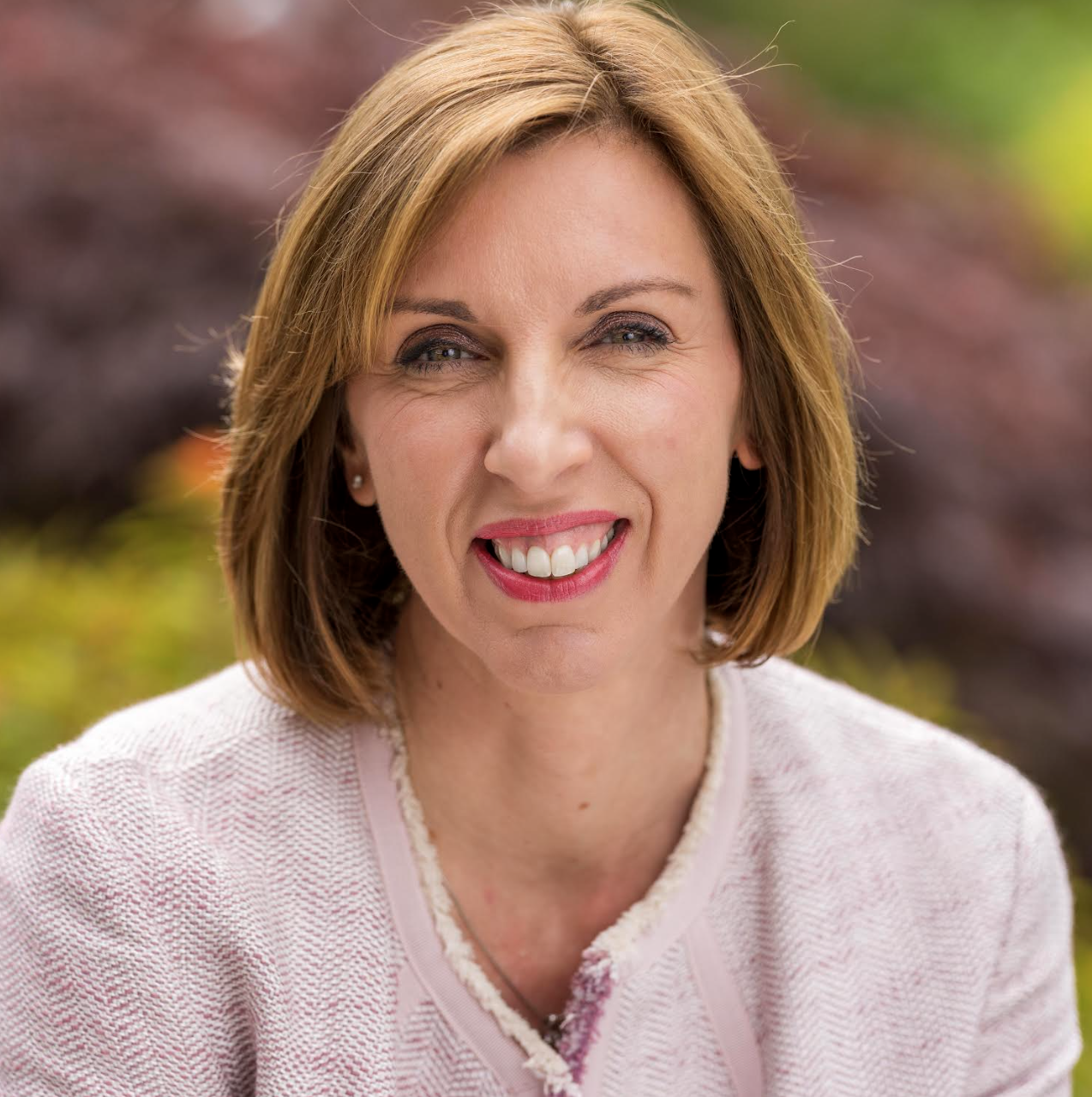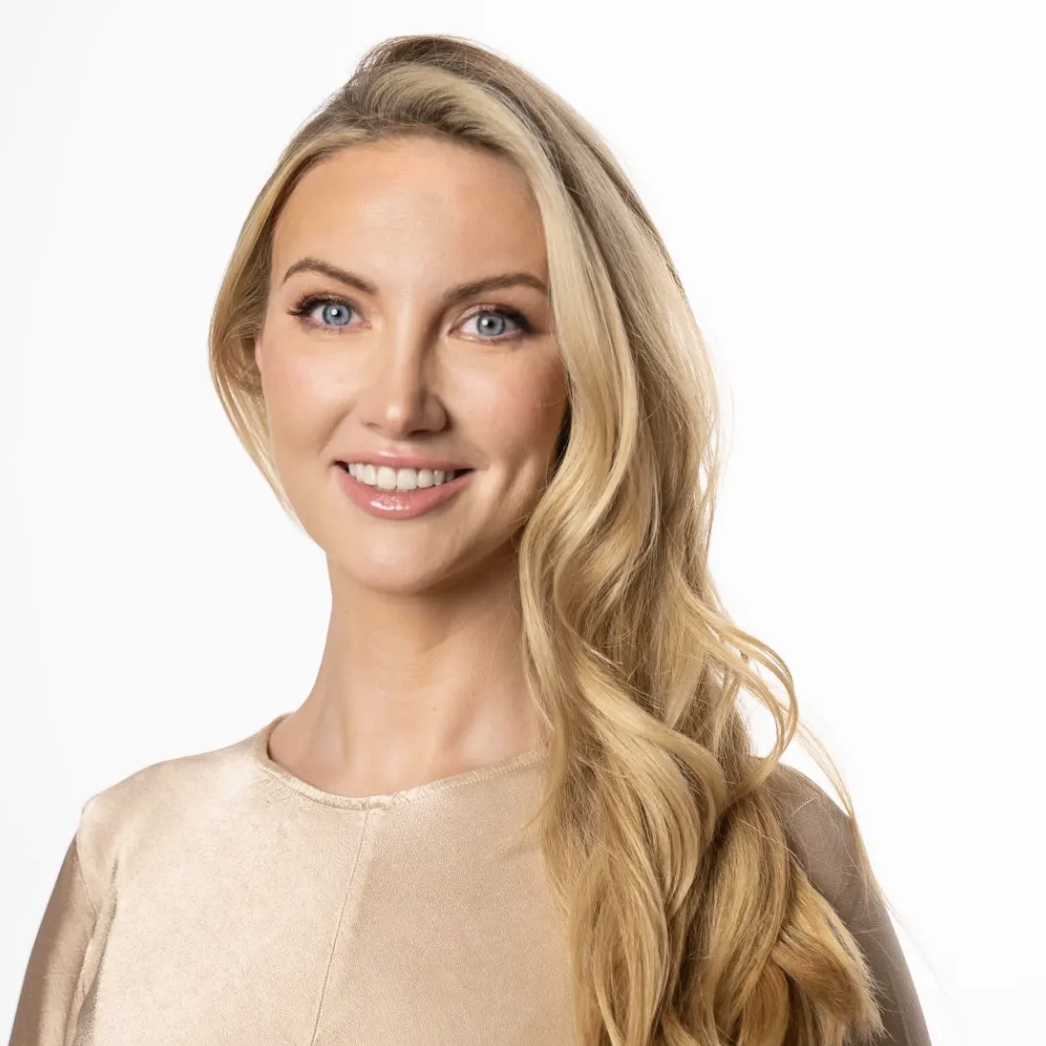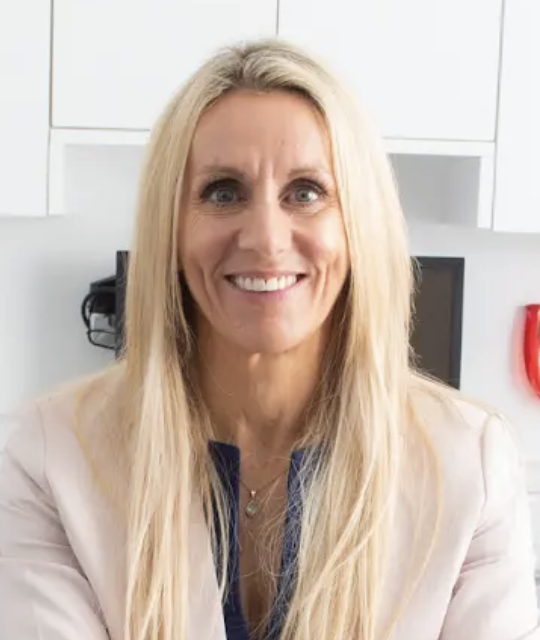How does ageing accelerate in your 40s? 12 things medical experts want you to know
New research has identified 44 years old as a turning point - from skin to metabolism, here’s what women should know…


Parenting advice, hot topics, best buys and family finance tips delivered straight to your inbox.
You are now subscribed
Your newsletter sign-up was successful
Your 40s is an exciting time of life, in which you can enjoy the confidence gained in previous decades and enjoy the fruits of challenges overcome in previous decades - whether career or family. However, with your diary likely balancing many things, it is also important to be aware of your health at this age.
That’s because recent research by Stanford University has shown that humans dramatically age in two bursts - the first being aged 44. This stage, the scientists suggested, correlated with a spike in certain health issues. For women, in particular, this is a decade when physiological changes mean certain conditions are more likely.
“As women enter their 40s, ageing can accelerate - particularly due to hormones,” says GP Dr Asia Ahmed. “The onset of perimenopause, which typically begins during this decade, leads to fluctuations in oestrogen and progesterone levels.” Which can have an impact on everything from skin elasticity to bone density and cardiovascular health.
To break it down for you, we’ve called on leading doctors to share their expert insight on what women might expect when it comes to factors impacting their mental and physical wellbeing during this time. If you are concerned about any aspect of your health, it is important to speak to a healthcare professional.
Additionally, make sure to follow the latest NHS guidance - including going for your routine Health Check, available from the age of 40 - and take steps to look after your body, such as diet and exercise. “Adopting healthy lifestyle habits and seeking medical advice will help manage these changes effectively,” adds Dr Ahmed.
How does ageing accelerate in your 40s?
1. Skin ageing can speed up
“As we age our skin starts to lose its collagen, which accelerates for women in our mid to late-40s,” explains Dr Leah Totton, a medical and cosmetic doctor. “Collagen is a crucial protein that acts as the building block for your skin, giving it firmness and elasticity, and is responsible for keeping your skin smooth and plump. The most significant dip in collagen level comes around the fifth year of menopause when it drops by 30%.”
Dr Totton continues: “The decline in collagen leads to common signs of ageing - such as wrinkles, fine lines and sagging skin. The main areas which sag include the cheeks, corners of the mouth, jowls and jawline.” As such, she recommends wearing a high-factor SPF daily sunscreen for your face to prevent premature ageing, avoiding smoking and speaking to a specialist doctor for personalised advice.
Parenting advice, hot topics, best buys and family finance tips delivered straight to your inbox.
2. Hair may feel different
“Hair thinning is linked to hormonal changes for women, which begin in perimenopause,” notes Dr Tunc Tiryaki, founder of the London Regenerative Institute. “Oestrogen supports hair growth and follicle health, so as levels decline during this time, hair may grow more slowly and become thinner. The ratio of the male hormones called androgens, to oestrogen, increases - which contributes to hair loss or thinning, especially along the top of the scalp.” This is called female-pattern baldness.
What’s more, Dr Tiryaki points out: “Additionally, hair turns grey as melanocytes, the cells responsible for producing the pigment in the hair called melanin, become less active. This process is largely influenced by genetic factors, but accelerates with age as the number of active melanocytes declines.”
3. There’s a risk of weight gain
Women in their 40s may experience a slowed metabolism. “As women age, their basal metabolic rate (BMR) decreases,” says Dr Tiryaki. “Muscle mass, which burns more calories than fat even at rest, begins to decline naturally. As this decreases, fewer calories are needed to maintain basic bodily functions, which can contribute to weight gain.”
This may also lead to other shifts. “Hormonal changes, particularly the decline in oestrogen, alter fat distribution in the body,” continues Dr Tiryaki. “Fat tends to accumulate more in the abdomen and around internal organs - called visceral fat - rather than in the hips and thighs. This increases the risk of metabolic syndrome, which includes conditions like insulin resistance, high blood pressure and elevated cholesterol levels.”
4. Hormonal fluctuations are likely
“Most women in their 40s experience perimenopausal symptoms,” says Dr Louise Newson, a GP and menopause specialist. “Perimenopause is the time when periods usually change - which can be heavier or lighter, or more or less frequent, The hormones oestrogen, progesterone and testosterone levels fluctuate and decline, with symptoms including low mood, memory problems, anxiety, muscle and joint pains, headaches, brain fog, mood swings, hot flushes and fatigue.”
Dr Newson continues: “It’s important for women to recognise these symptoms early and seek the right treatment. For instance, taking the right dose and type of hormones - called hormone replacement therapy (HRT) - improves symptoms as well as future health.” Indeed, hormonal imbalances can increase the risk of conditions such as osteoporosis, diabetes, dementia and cardiovascular disease.
5. Look after your bone health
“Bone density decreases as women age, especially during perimenopause and menopause,” explains Dr Tiryaki. “The decline in oestrogen, which plays a crucial role in maintaining bone health, accelerates bone resorption - the process by which bone tissue is broken down.” This loss of bone density, he notes, can be especially apparent with a loss of definition in the face, including the temples, cheekbones, eye sockets and jawline.
However, it can happen throughout the body. “Women in their 40s are at higher risk of developing osteopenia - the name for early-stage bone loss - and later osteoporosis if proper care isn’t taken,” adds Dr Tiryaki. “Strength training, as well as getting enough calcium and vitamin D, can help mitigate this.”
6. Take note of brain function
“We wouldn't necessarily expect a decline in cognitive health in a woman's 40s, and any change in cognitive function and memory should be investigated,” says Dr Adam Staten, a GP and clinical director at One Day Tests. “This could be caused by thyroid disease, deficiencies in certain nutrients or may represent the 'brain fog' that some women experience during perimenopause.
“Stress, depression and anxiety are also common causes of apparent cognitive problems in younger people.” If you are struggling with things like concentration, decision-making and memory, it is important to speak to your doctor. A healthy lifestyle - such as diet and movement - can also have a protective effect for the brain.
7. Heart health issues may arise
“There aren't any inevitable heart problems that develop in a woman's 40s but it is often around this age that lifestyle factors begin to take effect,” notes Dr Staten. “People are often first diagnosed with high blood pressure in their 40s. While it is common for it to rise as we age and high blood pressure can run in families, when it occurs in this decade it is often contributed to by lifestyle factors - such as a high salt intake, a sedentary life and being overweight.
“Ischemic heart disease is also not very common in women of this age, but might be present in those who have a strong family history of heart disease at a young age or who have a history of smoking.” Additionally, Dr Ahmed - a digital clinician at Medichecks - points out that menopause where oestrogen levels fall - can likewise raise the risk of cardiovascular issues in women.
8. Your smile may change in appearance
“Teeth are likely to change as we age, and in some cases, people’s jaw shapes can alter over time which can cause the teeth to become more crowded,” says Dr Nyree Whitley, a dentist and chief clinical officer at mydentist.
“Similarly, you may find that your enamel can get worn down as you get older, causing tooth sensitivity, which may be due to chewing, grinding your teeth or drinking acidic drinks over the years.” It is important to maintain good oral health - including regular tooth-brushing and flossing - and speak to your dentist to receive tailored advice.
9. Be aware of your vision and hearing
“Hearing problems do not usually develop in this age group unless there is a history of a lot of noise exposure over the years, for example people who work in very noisy environments or have spent a lot of time in nightclubs or concerts,” notes Dr Staten. If you are concerned, you should speak to your doctor for personalised advice.
Dr Staten continues: “Vision problems can also begin at this age as the lens of the eye loses some of its elasticity, so it is usually between the ages of 40 and 60 that people start to need reading glasses.” You should speak to an optician if you are concerned about changes in your sight, so it can be addressed as early as possible.
10. Sleep patterns may change
“When it comes to sleep quality, it’s common that women in their 40s will notice this declining with age,” says Dr Ahmed. “This is because hormonal changes during perimenopause can lead to insomnia and fragmented sleep.” Studies show that sleep efficiency decreases by about 3% per decade in adults over 40, and unfortunately women are usually affected more.
Dr Staten adds: “Much of it is due to the fact that this is often a very busy and stressful time in life. Women of this age are often balancing a career and family, and may also by this point have responsibilities for caring for their own ageing parents. All these things can disrupt sleep and sleep is a habit - once you fall out of the habit of good sleep, it can be difficult to regain it.”
11. Having a baby becomes trickier
Women wanting to become mothers for the first time, or again, in their 40s may need to consider a range of routes. “Fertility often declines in the 40s as the quality and number of eggs diminish,” notes Dr Newson. “Ovulation becomes less consistent, and women may find it more difficult to conceive.”
Dr Newson points out: “Although pregnancy may still be possible, the chances decrease significantly during this decade, and the risk of complications rises. Women trying to conceive at this stage should consult a healthcare provider about fertility options."
12. Mental health may suffer
“A woman’s wellbeing in her 40s can be negatively impacted by hormonal changes during perimenopause and menopause,” notes Dr Newson. “Declining hormone levels can be associated with mood disturbances - including anxiety, depression, and irritability. Many women also experience brain fog, memory issues and difficulty concentrating. These changes can affect daily life and work performance.
“Addressing mental health symptoms through lifestyle changes, support networks and treatments - including HRT - can help. It's important to remember that antidepressants won't improve your symptoms if they're caused by a drop in hormones - if you suspect you could be perimenopausal or menopausal, make sure to discuss this with your doctor.”
We spoke to the following experts

Dr Louise Newson is a GP and menopause specialist. She qualified from the University of Manchester, and is a member of the Royal College of Physicians as well as a Fellow of the Royal College of GPs. She founded Newson Health, which provides consultations to women across the UK, and also the menopause support app balance.

Dr Asia Ahmed is a GP for the NHS, having studied medicine at the University of Liverpool. She is also a digital clinician at Medichecks, where she is a strong advocate for women’s health as well as passionate about the importance of mental and emotional wellbeing.

Dr Leah Totton is a medical doctor and cosmetic specialist, and has a post-graduate diploma in dermatology. As well as her own chain of award-winning cosmetic skin clinics, she has her own skincare line. She is also a winner of the BBC’s The Apprentice, and business partner to Lord Alan Sugar.

Dr Tunc Tiryaki is the founder of the London Regenerative Institute, which specialises in longevity and regenerative medicine. He is a board-certified consultant plastic surgeon, and is the chair of the Humanitarian Programs of ISAPS (International Society of Aesthetic Plastic Surgeons) and founder of ISAPS-LEAP Surgical Relief Teams, who conduct volunteer reconstructive surgery operations around the world.

Dr Adam Staten is a GP and clinical director at One Day Tests. He trained at Cambridge University and King's College London. After serving as a medical officer in the British Army, he returned to the NHS. He has an interest in stress and burnout and has written several books on the subject.

Dr Nyree Whitley is a dentist and chief clinical officer at mydentist. She qualified from Guy’s Hospital in 1996 and has held posts in primary and secondary dental care over the past 20 years. She has been group clinical director since October 2017, and was a regional clinical director the previous 18 months.

Lauren is a freelance writer and editor, with more than eight years of experience working in digital and print journalism. She has penned news and features for titles including Women's Health, Daily Telegraph, Cosmopolitan, The Times, Stylist, The Guardian, Woman & Home, Dazed, The Sun's Fabulous, Yahoo UK and Grazia.
Lauren specialises in covering health and wellness topics—ranging from nutrition and fitness, to health conditions and mental wellbeing. She also runs a weekly newsletter called Well, Actually..., which has been named a Substack Featured Publication.